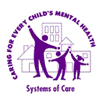“We do not see things the way they are; we see things the way we are.” -Talmud
Cultural and linguistic competence is one of the core values of systems of care. For decades, the prevalence of racial and ethnic disparities in health care delivery and outcomes in the United States has been increasingly recognized. Culturally and linguistically diverse groups and individuals of limited English proficiency typically experience less adequate access to care, lower quality of care, and poorer health status and outcomes.
Health care providers take many approaches to bridge barriers to communication that stem from racial, ethnic, cultural, and linguistic differences. Cultural and linguistic competence encompasses both interpersonal and organizational interventions and strategies for overcoming those differences.
Linguistic Competence: Providing readily available, culturally appropriate oral and written language services to limited English proficiency (LEP) members through such means as bilingual/bicultural staff, trained medical interpreters, and qualified translators.
Cultural Competence: A set of congruent behaviors, attitudes, and policies that come together in a system or agency or among professionals that enable effective interactions in a cross-cultural framework.
Cultural and Linguistic Competence: The ability of comprehensive health providers and health care organizations to understand and respond effectively to the cultural and linguistic needs brought by the patient to the health care encounter.
Cultural competence requires organizations & their personnel to:
- Value diversity.
- Assess themselves.
- Manage the dynamics of difference.
- Acquire and institutionalize cultural knowledge.
- Adapt to diversity and the cultural contexts of individuals and communities served.










